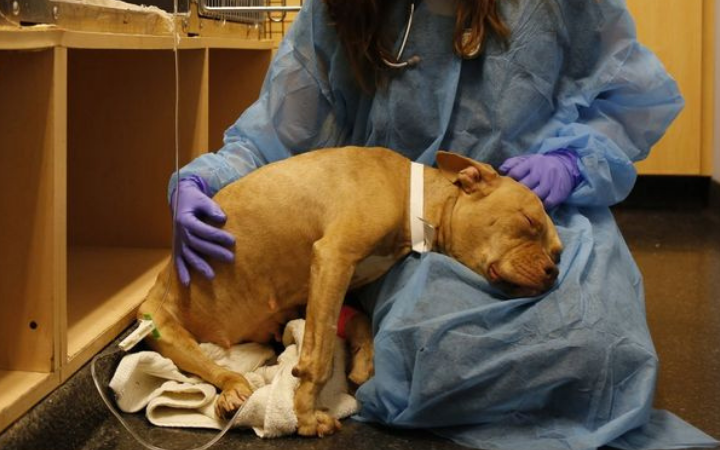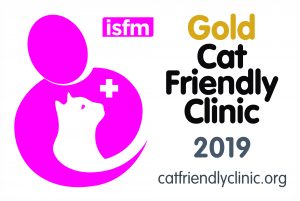Date: 21 May 2021
By: admin

⚠️ Parvovirus is a dangerous disease that can be life-threatening for dogs. ⚠️
Parvo is every new puppy and dog owner’s worst nightmare. It has the ability to turn an active and healthy puppy fatally ill in a matter of a few days. Thankfully with vaccinations, parvo in dogs is a preventable disease. This blog will tell you everything you as a new puppy/dog owner needs to know in preventing it, and what to do if your puppy or dog catches the parvovirus.
What is parvovirus?
Parvovirus is an extremely infectious disease that in many cases, can be fatal to your dog. The virus attacks the cells in a dog’s intestines and stops them from being able to absorb vital nutrients, causing any dog with it to become very poorly and dehydrated.
Parvovirus can also be known as parvo, canine parvovirus, or CPV.
How do I know if my dog has parvovirus?
Symptoms for parvo include:
🔸 Severe diarrhea
🔸 Vomiting
🔸 Loss of appetite
🔸 Dehydration
🔸 Depression
🔸 Collapsing
🔸 Fever
🔸 And even sudden death
Who can catch parvovirus and who is at risk?
More commonly seen in towns and cities with lots of unvaccinated dogs, the most at risk of catching parvo are young puppies and unvaccinated dogs. This includes those who have not had their booster injections.
Parvo is a very rapid disease and the symptom can come on strong very quickly, making your dog very weak. This will cause the dog’s immune system to have to work very hard to battle the disease. Young dogs, between six weeks and six months old are also more susceptible to secondary infections, or they may die from dehydration.
How contagious is parvovirus to other dogs?
The simple answer is extremely contagious. It has the ability to spread very easily around dogs and puppies when they are not fully up to date with their vaccinations.
It can take up to seven days to show signs but the symptoms can come on a lot quicker.
Parvovirus is spread through body fluids, including in a dog’s urine, poo and vomit. Parvo is extremely resilient and has the ability to survive outside the body and stay alive in everyday places such as grass at the park and other walking spots. If your dog has come into contact with bedding, food and water bowls, carpet, or a kennel that a dog with parvovirus has touched, they can potentially catch the virus. Parvo can also be spread on shoes, clothing and even human hands.
How can I prevent my dog from catching parvovirus?
Typically, dogs and puppies can be vaccinated against parvo from the age of 6 weeks.
Any new puppy should receive their first vaccine at six to eight weeks old and will need a second vaccine two weeks later. After that, they will need a booster vaccine at one year old.
After this, a yearly booster is common or less often if advised by your vet. By having this vaccination you will be protecting your dog against this deadly disease.
Boosters are important for dogs to keep up to date with, but the time between these varies so check with your vet to see how often your dog should be vaccinated.

I am thinking of getting a new puppy. How do I make sure they are safe against parvo?
When getting a puppy from a breeder or rescue center, it is really important to not take them home without making sure they have had at least their first vaccination against parvo. Each puppy should have a vaccination card, which will be signed by a vet or vet nurse (RVN) that they have been vaccinated and confirmation of when the next jab is due.
We recommend phoning the vet who has vaccinated them to make sure it has been done.
What do I do if I suspect my dog has parvo?
If you recognise the symptoms above in your own dog, call our veterinary practice immediately for advice. Make sure to tell them what symptoms your dog or puppy has, and whether or not they’ve come into contact with a dog with confirmed parvovirus.
It is vital to seek help immediately as most deaths from parvo happen within 48 to 72 hours of the symptoms showing. The quicker you seek help, the greater your pet’s chances of survival.
Make sure that you keep your dog away from any other dogs as it spreads easily. You should tell your vet if you also have other dogs in your household as they can give advice on how to stop it from spreading around all your pets.
I think my dog has parvovirus. What treatment is available?
The treatment for parvo is designed to support a dog’s immune system and help their body become strong enough to fight off the disease.
Dogs and puppies with parvovirus need to be treated at a vet’s and are likely to need hospitalisation. They will be put on a drip and given intravenous fluids to stop them from becoming dehydrated. They may also be given drugs to help control vomiting.
Dogs with parvo may catch a secondary infection as a result of a weakened immune system, so maybe given antibiotics.
It is so important to keep dogs and puppies with parvo in isolation and keep well away from other animals. Your vets and nurses will wear specialist protective clothes and shoes when treating them to prevent the disease from spreading to other patients. The average hospital stay for a dog recovering from parvo is five to seven days.
Treatment for parvo is also very expensive because your dog will need several days’ stay in intensive care. Costs for round the clock nursing and veterinary care, medicines and fluids tot up. Bills can easily run into the hundreds, if not thousands, of pounds. This is why it is essential to get your puppy or dog vaccinated at the correct time.
Can I or any other human catch parvo from dogs?
Humans cannot get parvovirus from their dogs. However, they can pass on parvo from one dog to another on their clothes, shoes or hands.
Parvovirus is very serious and you will need to react quickly if you suspect your dog has it or has been in contact with a dog who has it. If your puppy or dog is showing signs of parvo, please don’t hesitate to contact us on 0208 674 3525. 📞 Our experienced team will be able to give you more information and help to answer any questions you may have.
To learn more on parvovirus, how to protect your puppy or other diseases you will need to vaccinate your puppy against, you can download our ‘Ultimate Puppy Guide’ for all the hints and tips you need to keep them safe.
Search Blog Articles
Blog Categories
- Advice From Your Vets (118)
- Kittens (6)
- Pet Healthcare (26)
- Puppies (17)
- Seasonal Tips (10)
- VIP Healthcare Plans (8)
- Covid-19 News (15)
- Weekly News (63)
Like Us On Facebook
Recent Posts
Archives
- May 2024
- October 2023
- July 2023
- June 2023
- March 2023
- December 2022
- September 2022
- April 2022
- December 2021
- November 2021
- October 2021
- September 2021
- August 2021
- July 2021
- June 2021
- May 2021
- April 2021
- March 2021
- February 2021
- January 2021
- December 2020
- November 2020
- October 2020
- September 2020
- August 2020
- July 2020
- June 2020
- May 2020
- April 2020
- March 2020
- February 2020
- January 2020
- December 2019
- November 2019
- October 2019
- September 2019
- August 2019
- July 2019
- June 2019
Join our surgery by registering your pet online Register now
What Our Clients Say
Very polite, straight forward, genuinely care about what they do. Excellent service and advice
Jack Billing
The service was amazing
Byron Watson
Great service, will go out of their way to do anything they can to help your pets. Would happily recommend.
Sharon And Michael
Wonderful Caring and Helpful very Pet Friendly.
Amanda
Caring and loving support with end of life treatment of my best friend Bernie x.
Miss M And Dusty




© London Veterinary Surgeries
